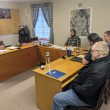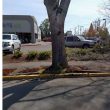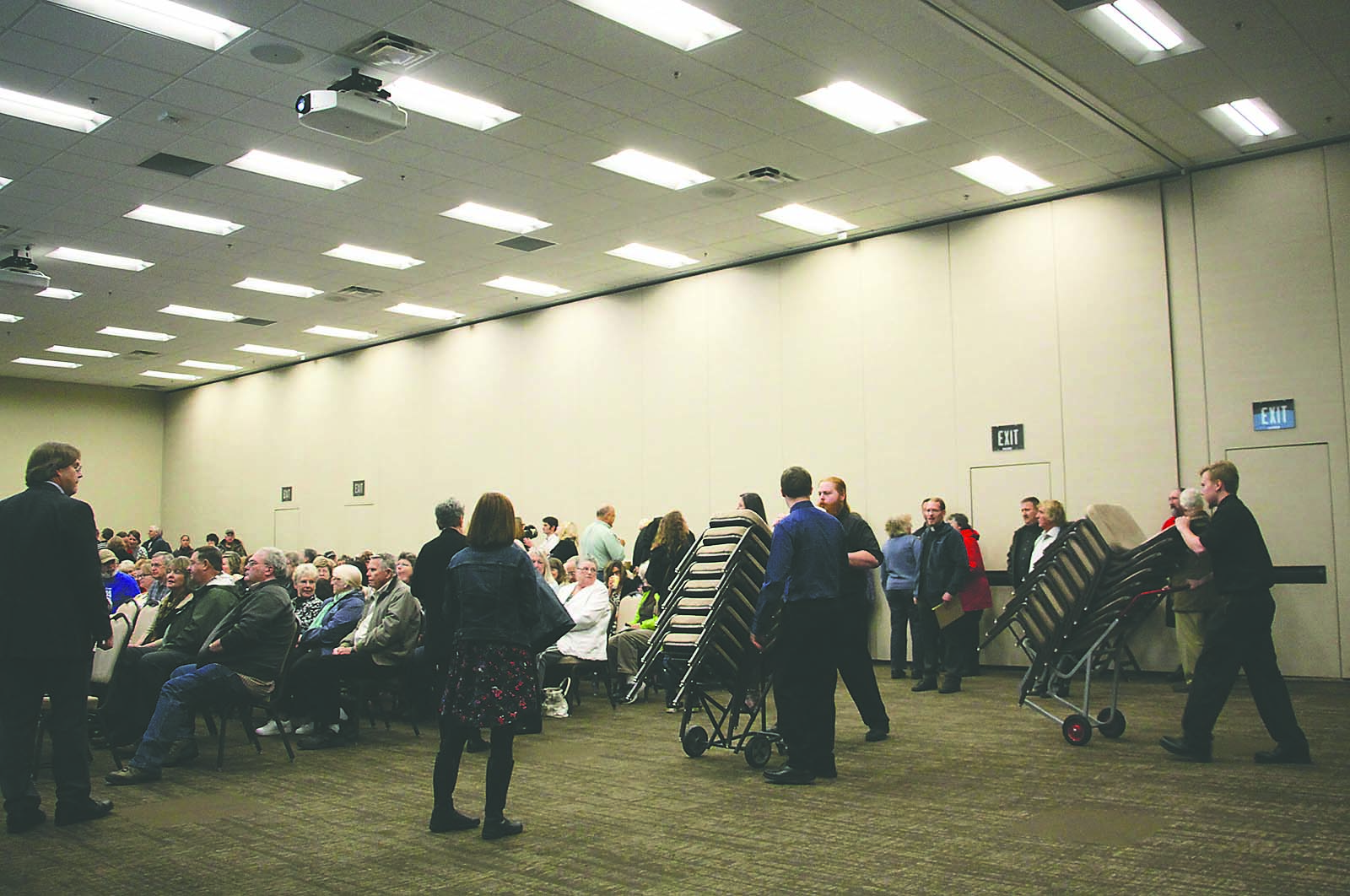Nearly a year since a coalition on homelessness formed with the intent to address issues of poverty and homelessness in Lebanon, it still meets and results have been positive, Gary Marks, Lebanon city manager, said.
“It all came out of our strategic plan and our community visioning process,” Marks said. “We had two action items in the plan. One of them was to establish this coalition because we felt that up to that point, not exclusively, but we felt there was a siloing effect. That there were lots of good folks and organizations trying to address the homeless issue but all doing it themselves in a silo.”
The coalition is not a city committee, but a loosely knit federation of organizations, he said.
Dave Albanese, community service officer, is the chair.
The group includes representatives from Linn County Mental Health Service, Community Services Consortium, PNW Adult & Teen Challenge, Lebanon Community Schools, Lebanon Soup Kitchen, Transform Lebanon/Lebanon Ministerial Association and the Boys & Girls Club of the Greater Santiam.
“We started this off with our Summit on Homelessness which was in late October of 2016,” Marks said. “We wanted to educate the community. There were lots of questions that came out of the visioning process about why do we have a homeless problem. Who are the homeless amongst us? What can we do about it?”
Dr. Robert G. Marbut, a Texasbased consultant on homelessness, spoke at the summit.
Marbut shared his observations after interviewing people who are homeless in Lebanon, as well as representatives from the agencies and churches who help them.
Homelessness in Lebanon is a home-grown problem, he said.
A little more than half of the homeless people Marbut interviewed, said they either went to Lebanon High School or another Linn County school.
“What he found was that we had a homeless community, that we had 70 or 75 people he counted in the assessment he did,” Marks said.
“They had an assortment of issues – mental health, substance abuse, relational issues with significant others and all sorts of things.”
About 300 people attended the summit.
“It’s the largest community gathering I’ve seen since I’ve been here,” Marks said. “I felt it was well received and got a big round of applause afterwards so I felt like that
was a success.”
Members of the coalition have met once a month, except during the summer, Albanese said.
“Since April we have directed individuals and families to the Adult Service Team of Lebanon,” he said. “This group is made up of agencies that can give specific help and accountability to those who make application and attend the AST meeting they are scheduled for. The coalition meets to update the other agencies of any resources that
may help the AST.”
Marks believes the coalition is having an impact on people who are homeless in Lebanon, though he said he cannot identify individuals because of privacy issues.
“There are real life cases of people coming off the street, getting the help they need and beginning to have successful lives, which was our goal all along,” Marks said.
“For people who move around in the Lebanon community, I think most could agree that we see fewer homeless people out and about amongst us.”
Marks said there used to be an encampment north of River Park.
“That camp is gone,” he said. “It’s true that at times the police would go and clean those camps out but the last time it was cleaned out, it didn’t come back. In the past it
comes back. I believe that is because the population has lessened from what it used to be and I believe, at least in part, that is because some people have found some solutions
in their lives, which is a good thing.”
Marks said there is a significant portion of the homeless population who prefer that lifestyle.
“They don’t want to come off the streets and there’s probably not a whole lot that we’re going to be able to do to change that fact,” Marks said. “I think the idea that we are going to be able to solve homelessness probably is not a goal that is going to happen because some of them don’t want it to be solved.
“They’ve chosen that lifestyle for whatever reason and that’s their choice and the courts have supported them that they have the right to make that choice.”
Albanese said he has seen a positive impact of the coalition as well.
“It is hard to know what impact we can have because of confidentiality and privacy of those we work with,” Albanese said. “From my point of view, I see fewer living in camp settings and in vehicles. Law enforcement has been on fewer calls for illegal camping. Those that are willing to make changes and be accountable to focus on their needs are being helped. Those who want to live outdoors are living outdoors.





